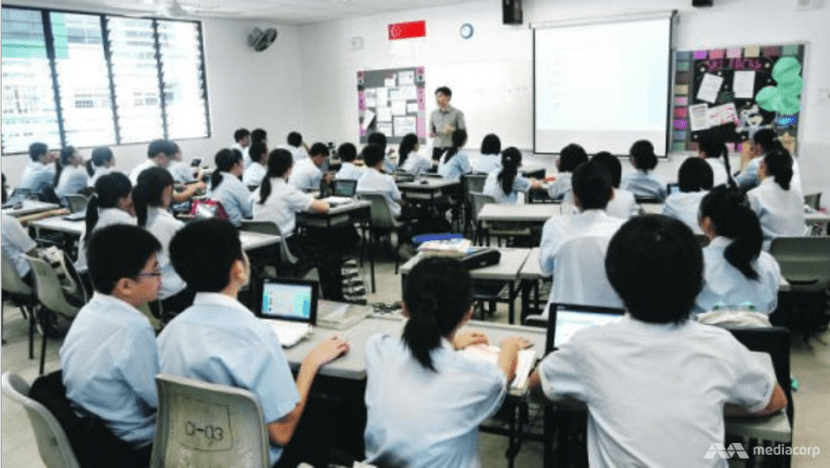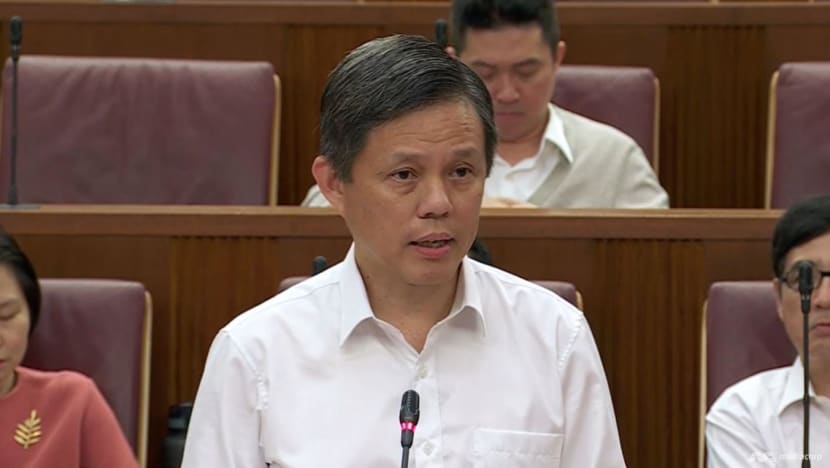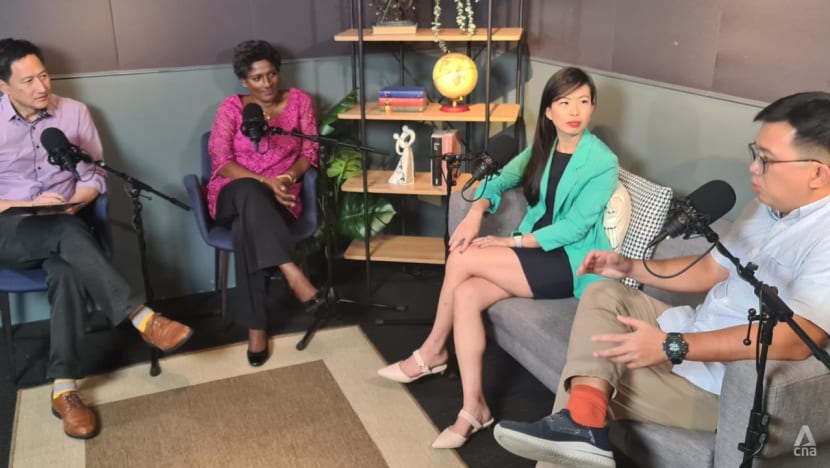Are classrooms the right space to discuss controversial issues?
This comes after the recent online uproar about what schools are teaching students about the Israel-Hamas conflict, as part of the Character and Citizenship Education (CCE) syllabus.

Students having a lesson in a classroom in Singapore. (File photo: TODAY/Ernest Chua)

This audio is generated by an AI tool.
SINGAPORE: Schools can provide a “safe space” for students to share their views, but parents also need to be part of the conversation, said experts.
This comes after the recent online uproar about what schools are teaching students about the Israel-Hamas conflict, as part of the Character and Citizenship Education (CCE) syllabus.
Some people were concerned that the narrative presented to the students was not neutral or objective, and lacked historical context of the wider conflict in the region.
Others claimed that teachers were not allowed to give further input in the lessons beyond what was prescribed to them.
LEARNING TO RESPECT EACH OTHER’S VIEWS
Dr Thavamalar Kanagaratnam, master specialist at the Ministry of Education’s (MOE) CCE branch, said CCE discussions look at issues that are relevant and meaningful to students, some of which they are already talking about.
“So then it becomes an opportunity within the classroom, to use that as a platform for them to learn how to talk to each other in ways that are respectful, where they get to express different points of view, and then learn how to maybe even agree to disagree,” she told CNA's Heart of the Matter podcast.
“So that's really the point of these types of conversations. It's not so much about understanding the issue itself, although that's an important part of it.
"But really, more importantly, it's the kind of skills you want them to learn, the kind of values you want them to demonstrate.”
Dr Thavamalar said building empathy, for instance, involves hearing the experiences and feelings of others.
“When you hear the perspective of another, you're not just listening with your head, but you're also listening with your heart,” she added.
“So that's what we are trying to work towards, that sort of mindset in our students and teachers.”

On the lessons that touch on the Israel-Hamas conflict, Minister for Education Chan Chun Sing said on Feb 25 that they are designed to help students understand their own emotions, empathise with others, as well as reflect on how to safeguard cohesion and harmony in a multiracial society.
They are not intended to be history lessons nor are they meant to ascribe who is right or wrong, he said.
On Mar 4, Mr Chan said in parliament that lessons on the Israel-Hamas conflict that are taught during CCE classes will be further customised for different age groups of students.
Dr Thavamalar said teachers often share during workshops how difficult it can be to facilitate controversial discussions.
“Especially when they have very strong views about it, it may not be so advisable for them to share their personal views. Because they do have an influence over the kids, especially if the kids respect them a lot,” she added.
“So we do tell them that you have a responsibility to remember your role as an educator, as a teacher, and you need to also remember that the kids come from very different backgrounds. You have to think about the families that the kids are coming from if you're going to share your personal views.”
Dr Thavamalar said teachers undergo professional development opportunities, “where we try to help them think about the questions that (they) ask rather than the answers”.
She added: “We often tell our teachers it's okay if mistakes happen. Actually we learn from things that don't go well as well. We can't expect people to be experts overnight.”
BUILDING A SAFE ENVIRONMENT TO SPEAK UP
Jurongville Secondary School principal Philibert Leow, another guest on the podcast, said teachers have to facilitate a “safe environment” for students to speak their mind.
“We remind the teachers what is the core (and) what is the main intent of the CCE lesson,” he said.
“We talk about respect, we talk about empathy, and we talk about holding that safe space for everyone to just express their views. So once that class norm has been set, I think students feel safe.”
Clinical psychologist Annabelle Chow, who was also on the podcast, said: “Everybody comes from different backgrounds, (with) different experiences. You're going to have different subjective experiences and perspectives about it.”
She added that when having discussions with the young, being age appropriate is important.
“So you think about the younger students, you want to make sure that the content is delivered in the most simplified way,” she said.

PARENTS NEED TO DO THEIR PART
Dr Thavamalar said students also observe not just what happens within the classroom, but beyond it too.
“One thing is for everyone, especially the adults in the school, to see themselves as being role models for students,” she added.
“Even among the staff, for teachers, the way they communicate with each other as well, this would be an example for the students.”
Mr Leow said the recent public scrutiny is a good time for parents to appreciate the work that has been done in school, and have regular communication with their children’s teachers.
“Whether or not they like it or not, their children are being exposed to views online, their children are struggling with some of these views online, and some of them are looking for space to talk about these views,” he said.
Dr Chow stressed that it is a shared responsibility, and parents have a part to play.
“There's a lot of pressure on teachers to be the ones who handle these conversations, and to manage the students' perspective or to offer them direction,” she added.
“Teachers now have a lot of pressure to be able to pick up mental health conditions, basic counselling ... But if we can start to educate parents during orientation and even ongoing conversations that it's actually shared responsibility, that could actually help.”


















